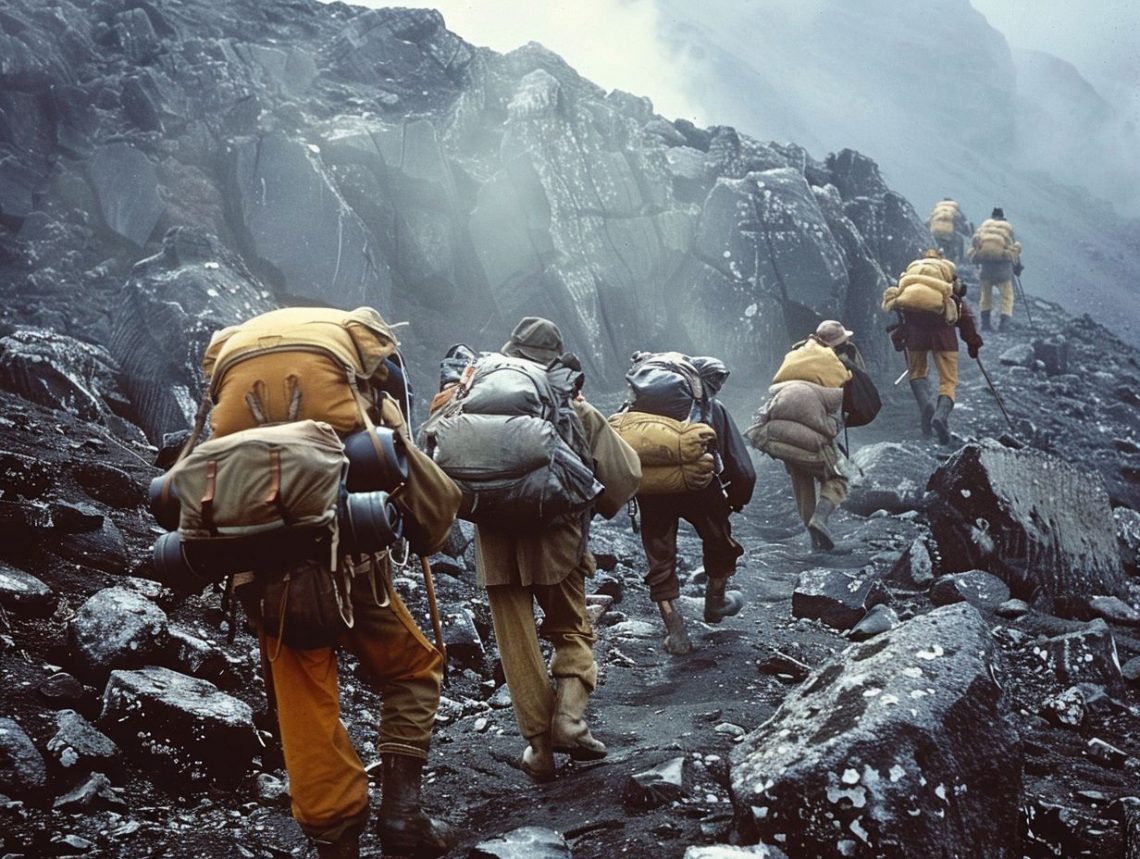
Kilimanjaro Porters
Kilimanjaro Porters play a crucial role in the success of climbers attempting to summit Mount Kilimanjaro. But who are these porters, and what qualifications and training do they need for this physically demanding job?
This article will explore the working conditions, environmental challenges, and ethical concerns surrounding Kilimanjaro porters, as well as the safety measures in place and the steps being taken to improve safety.
Join us as we discuss the future outlook for these hardworking individuals and the changes needed for sustainable and ethical practices in the industry.
Key Takeaways:
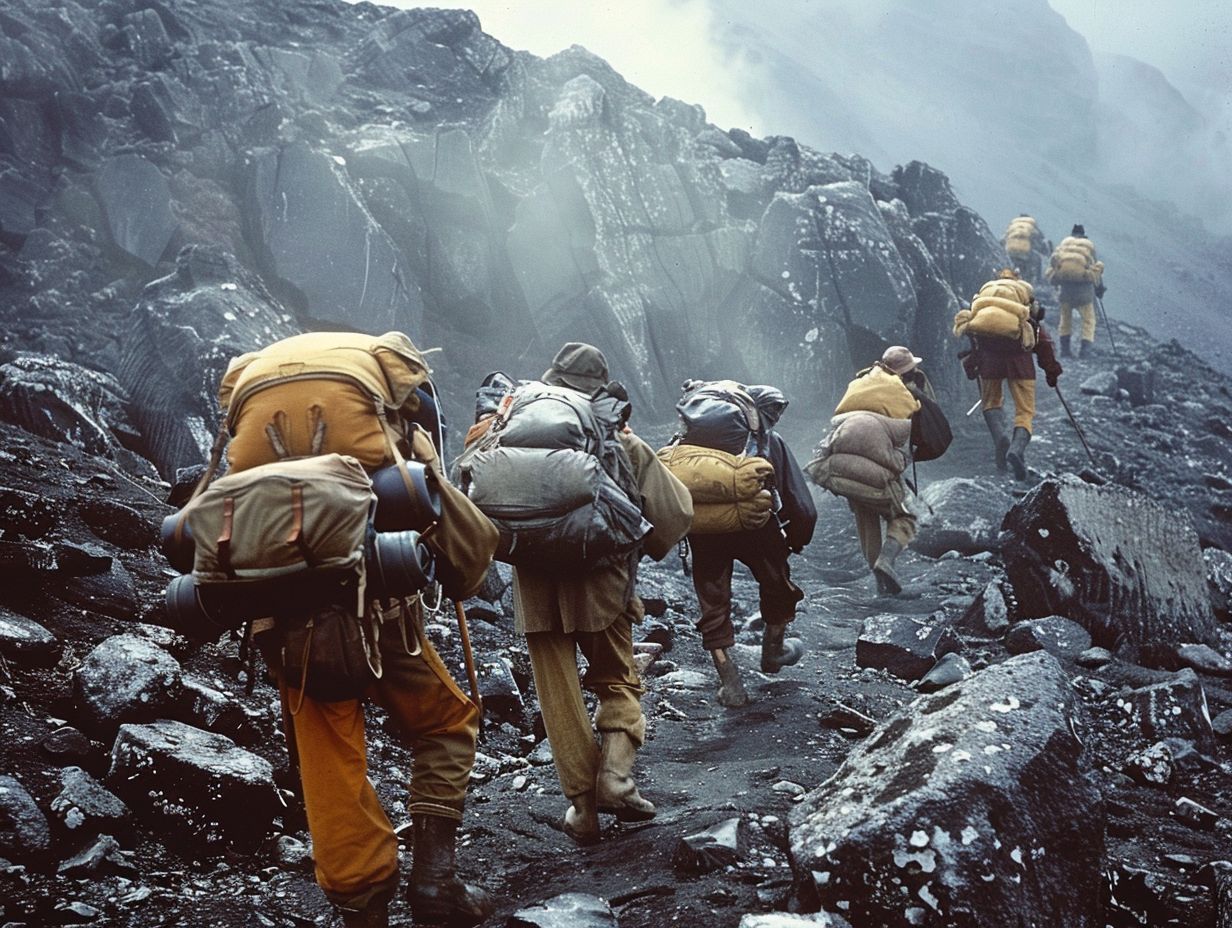
- Kilimanjaro porters play a crucial role in assisting climbers to reach the summit of Mount Kilimanjaro.
- Qualifications and training are necessary for porters to excel in their physically demanding job.
- Ethical concerns such as fair wages and treatment must be addressed, and climbers can support by choosing ethical tour companies.
What are the Qualifications and Training for Kilimanjaro Porters?
Qualifications and training for Kilimanjaro Porters vary, with organizations like KPAP focusing on ethical treatment, fair wages, and proper working conditions for these workers.
Porters play a crucial role in the trekking industry, often carrying hefty duffel bags filled with essential gear up the challenging terrains of Kilimanjaro.
Organizations such as KPAP have set high standards to address abuse, promote gender equality, and ensure that porters receive fair compensation for their hard work.
By offering training programs, they aim to enhance the skills of these individuals, give the power toing them to provide exceptional service to trekkers while also safeguarding their rights.
What are the Working Conditions for Kilimanjaro Porters?
Working conditions for Kilimanjaro Porters can vary, with concerns raised about porter abuse, particularly among female porters, and the need for improved wages, tips, and working conditions.
Porters on the Kilimanjaro expedition face numerous challenges on a daily basis. Gender disparities often come into play, with female porters experiencing additional risks and inequalities.
The lack of proper trekking gear and duffel bags further compounds the issue, as they are required to carry heavy loads without adequate support.
Despite the grueling nature of their job, fair compensation remains elusive, leading to discontent and financial hardships for many.
What are the Physical Demands of the Job?
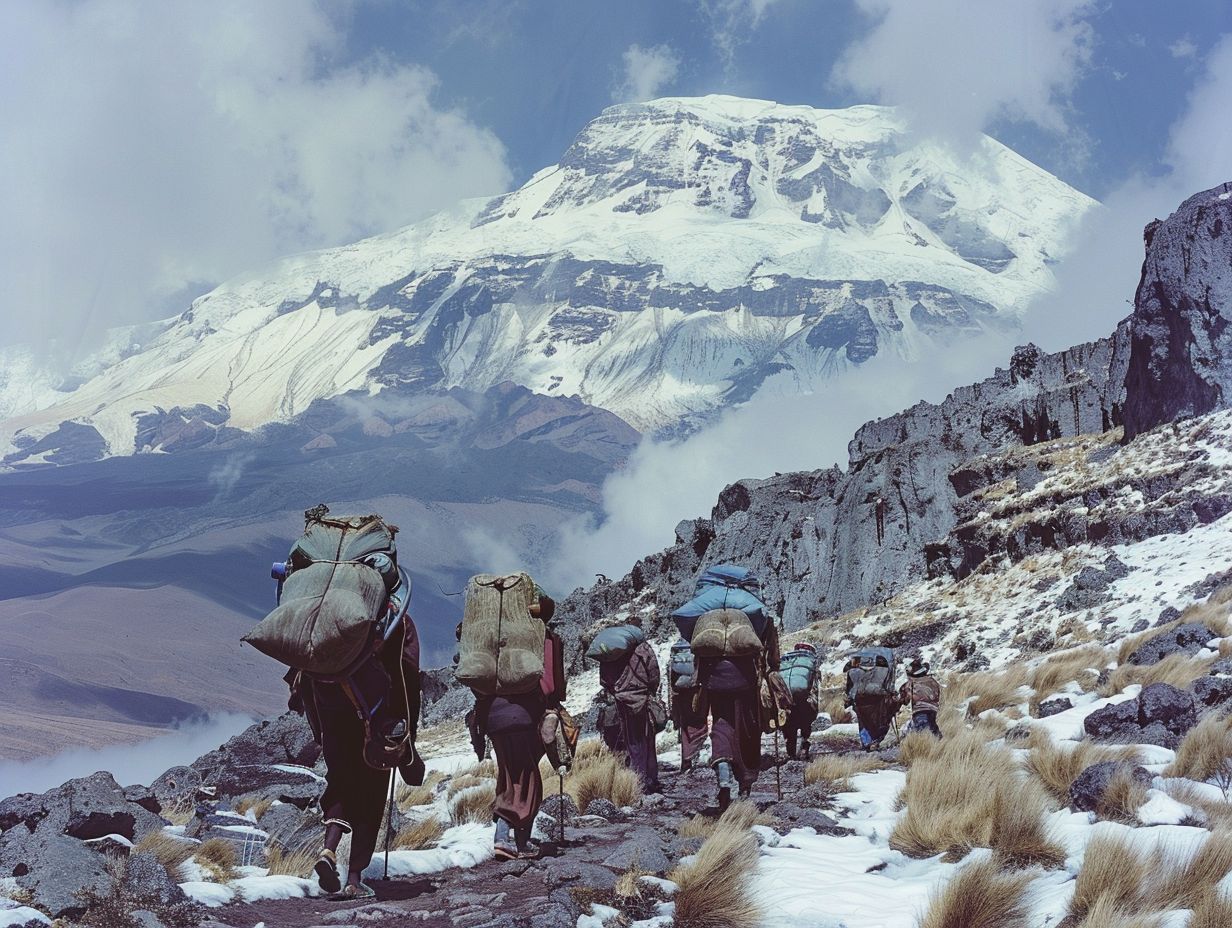
The physical demands of being a Kilimanjaro Porter are significant, requiring strength and endurance to carry heavy loads, navigate challenging terrain, and work in tandem with the team.
These porters often carry loads exceeding 20 kilograms, which can be a grueling task in high altitudes. The load weight limits are crucial for their safety and well-being as they ascend the mountain.
Utilizing climbing techniques like ‘pole pole,’ which means ‘slowly slowly’ in Swahili, is essential for acclimatization and preventing altitude sickness.
The teamwork among porters is critical, as they rely on each other for support and cooperation. Working together helps distribute the weight evenly and maintain a harmonious rhythm.
What are the Environmental Challenges?
Along with the physical demands, Kilimanjaro Porters also encounter environmental challenges such as unpredictable weather conditions, high altitudes, and rugged terrain.
The altitude on Mount Kilimanjaro can often lead to altitude sickness among climbers and porters, affecting their performance and requiring them to acclimatize slowly.
The changing weather patterns can bring sudden storms, extreme cold, or heat, making it crucial for porters to be prepared with suitable gear and clothing to withstand these conditions.
The diverse terrains on the mountain, ranging from rocky paths to icy slopes, demand a high level of agility and strength from the porters.
Teamwork plays a vital role in navigating these challenging landscapes, where coordination and communication amongst the porters are essential for a successful ascent.
What are the Ethical Concerns Surrounding Kilimanjaro Porters?
Ethical concerns regarding Kilimanjaro Porters revolve around issues of abuse, fair treatment, gender equality, and the need for organizations like KPAP to advocate for better working conditions.
Porters on Mount Kilimanjaro play a crucial role in the success of climbers, yet they often face challenges such as heavy loads, inadequate gear, and lack of insurance coverage.
One of the main ethical dilemmas is the disparity in payment between them and the guides, which often leads to unjust compensation.
Ensuring fair wages and proper treatment for all workers is paramount to establishing a sustainable and ethical climbing industry.
What are the Issues with Fair Wages and Treatment?
Fair wages and treatment remain contentious issues for Kilimanjaro Porters, with concerns raised about inadequate compensation, gender disparities.
Many porters, who are predominantly male, endure long hours of carrying heavy loads up challenging terrains, often facing physical strain and limited access to proper healthcare.
Female porters, though slowly increasing in numbers, face additional hurdles such as unequal pay and the risk of gender-based discrimination or abuse.
To address these challenges, it is imperative for tour companies and authorities to prioritize fair treatment, implement guidelines for fair compensation, and provide comprehensive support systems.
How Can Climbers Support Ethical Treatment of Kilimanjaro Porters?
Climbers can support the ethical treatment of Kilimanjaro Porters by advocating for fair wages, responsible trekking practices, and contributing to organizations like KPAP.
To ensure porters receive fair compensation, climbers should inquire about the porter wage structure with tour operators before booking their trek.
Porter abuse is a serious issue on the mountain, so it’s crucial to choose companies that prioritize porter well-being.
Trekkers can assist by adhering to responsible trekking practices, such as carrying their own gear when feasible and minimizing environmental impact.
Supporting local porters goes beyond financial aspects, encompassing respect, gratitude, and provision of adequate trekking gear for their safety and comfort.
What are the Safety Measures in Place for Kilimanjaro Porters?
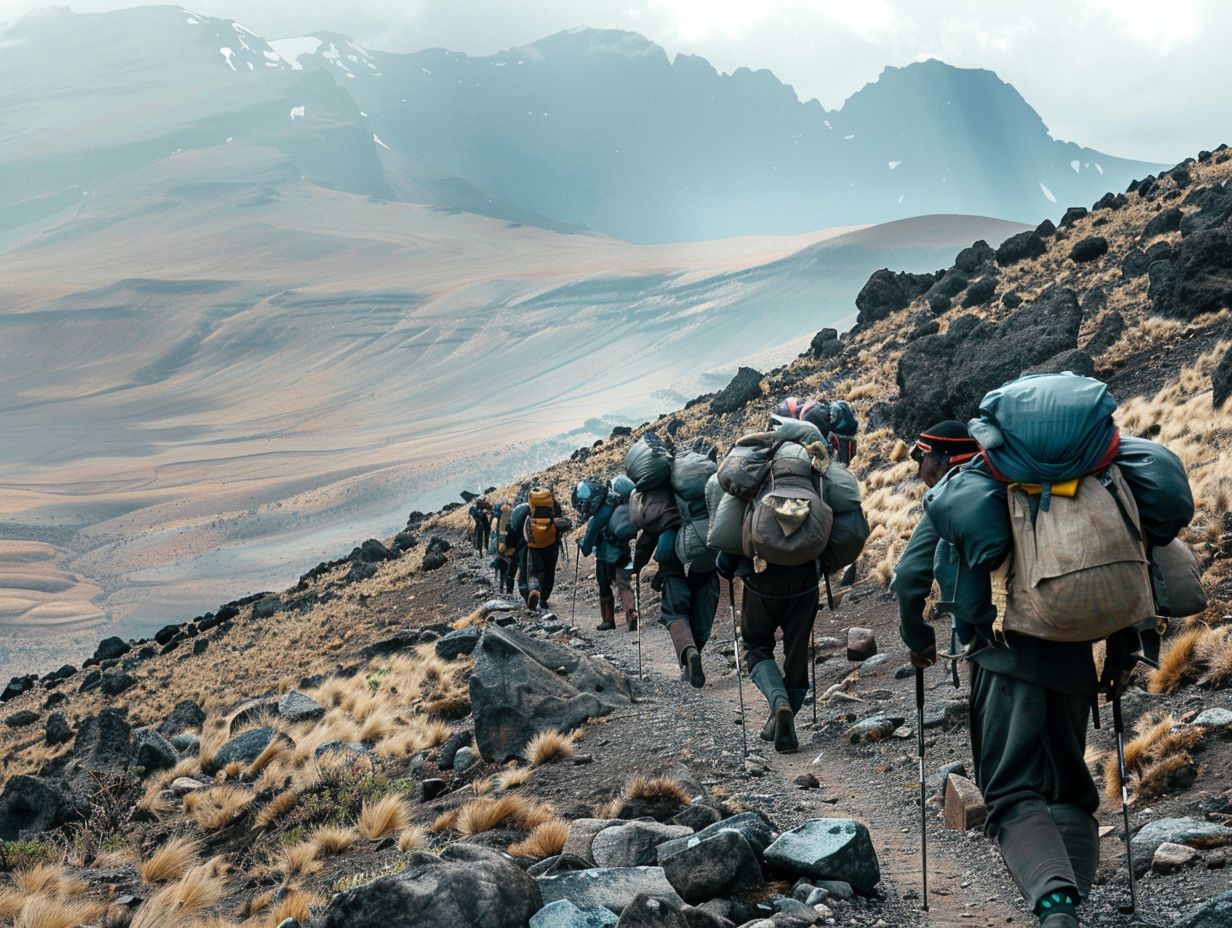
Safety measures for Kilimanjaro Porters are crucial to protect their well-being and ensure a secure working environment, with organizations like KPAP.
These measures encompass a wide array of aspects, ranging from proper training on using trekking gear to guidelines on carrying suitable duffel bags to prevent injuries.
Organizations such as KPAP have been at the forefront of implementing initiatives to curb porter abuse, improve working conditions, and enforce safety standards.
Through training sessions and regular monitoring, KPAP ensures that porters are equipped with the necessary knowledge and tools to navigate the challenging terrains of Kilimanjaro safely.
By setting forth regulations and advocating for fair treatment, KPAP not only safeguards the physical well-being of porters but also enhances their overall working experience.
What are the Risks of the Job?
The job of a Kilimanjaro Porter comes with inherent risks, including physical strain from carrying heavy loads, altitude-related challenges.
Porters on Kilimanjaro carry not only their gear but also supplies for trekkers, often navigating steep terrain while facing harsh weather conditions.
The physical strain of this continuous heavy lifting can lead to fatigue, muscle strain, and even injuries if proper precautions are not taken.
Altitude sickness is a significant risk for both porters and climbers, as the ascent to higher altitudes brings decreasing oxygen levels and potential health complications.
Porters work closely with guides and fellow team members to distribute weight evenly, maintain a steady pace, and watch for signs of altitude sickness in themselves and others.
By communicating effectively and supporting each other, the team can address challenges efficiently and adjust their climbing strategies as needed to minimize risks.
What are the Steps Being Taken to Improve Safety?
Efforts are underway to enhance safety for Kilimanjaro Porters through initiatives that address porter abuse, promote gender equality, improve working conditions, and advocate for better wages.
Organizations such as the Kilimanjaro Porters Assistance Project (KPAP) play a crucial role in monitoring and enforcing these standards.
Through their efforts, they aim to eradicate exploitative practices and create a more sustainable and ethical environment for these hardworking individuals.
What is the Future Outlook for Kilimanjaro Porters?
The future outlook for Kilimanjaro Porters hinges on sustainable and ethical practices, with organizations like KPAP, Tanzania Porters Association and Mount Kilimanjaro Porters Society.
Ensuring the well-being of Kilimanjaro Porters involves addressing issues related to fair wages, proper gear, and suitable working hours.
Organizations such as KPAP have been pivotal in setting standards for ethical treatment and promoting sustainable trekking practices on Mount Kilimanjaro.
Through their efforts, the Tanzania Porters Association and Mount Kilimanjaro Porters Society have contributed significantly to improving working conditions and advocating for their rights.
These organizations collaborate closely with tour companies and governmental bodies to enforce regulations that prioritize the safety and welfare of porters.
What Changes are Needed for Sustainable and Ethical Practices?
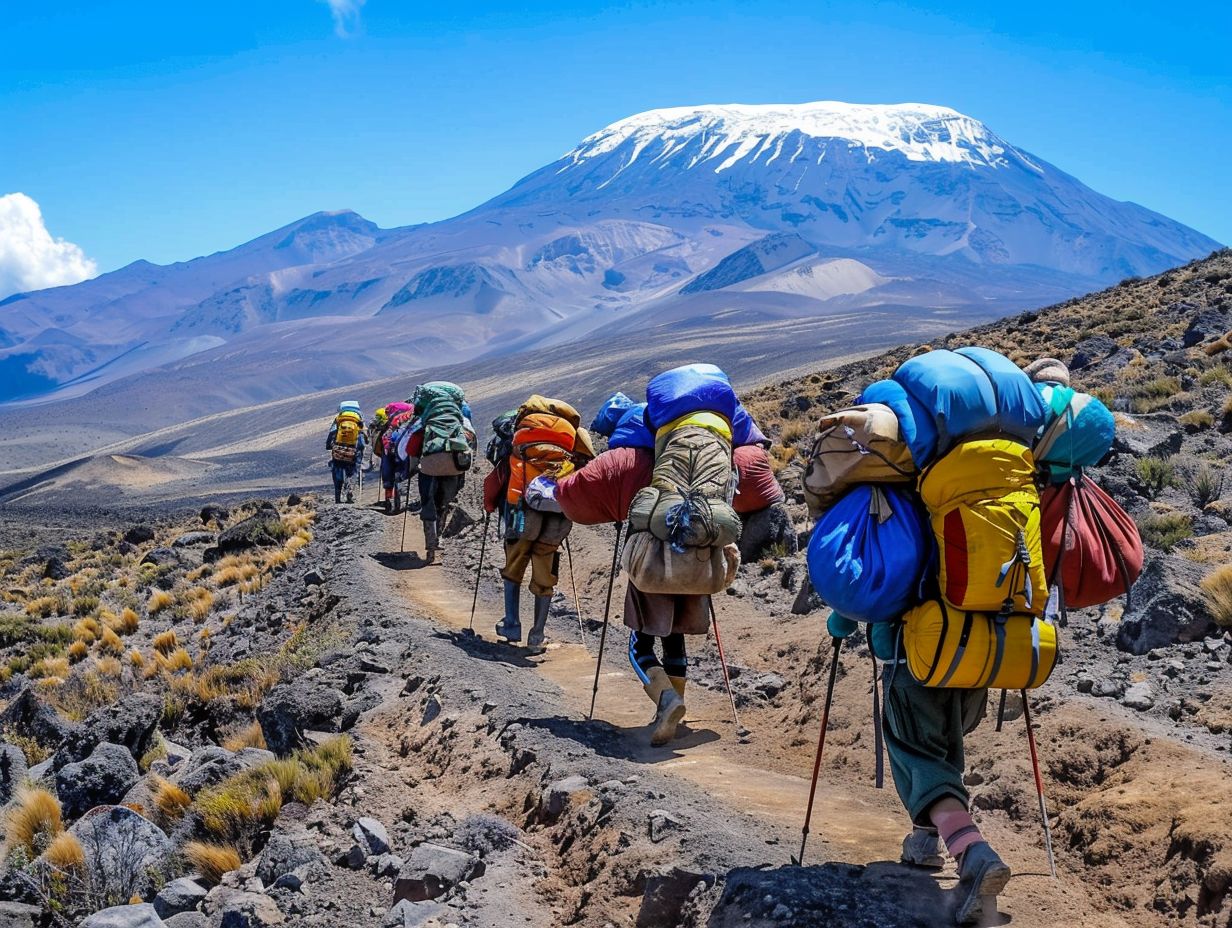
Achieving sustainable and ethical practices for Kilimanjaro Porters requires collaborative efforts and the involvement of organizations such as KPAP, the Tanzania Porters Association, and the Mount Kilimanjaro Porters Society.
Collaboration among stakeholders is crucial in ensuring the welfare and fair treatment of the porters who play a vital role in the success of Kilimanjaro expeditions.
The ‘pole pole’ principle, advocating for a slow and steady pace, not only benefits the porters’ health but also enhances the overall experience for climbers.
Organizations like KPAP, dedicated to improving porter conditions, have set standards that focus on fair wages, proper equipment, and ethical treatment.
Working in conjunction with groups like the Tanzania Porters Association and the Mount Kilimanjaro Porters Society, these efforts aim to create a more sustainable and responsible trekking.
Frequently Asked Questions
1. What are Kilimanjaro porters?
A: Kilimanjaro porters are individuals who are hired to carry equipment and supplies for tourists and climbers on Mount Kilimanjaro in Tanzania. They play a crucial role in supporting trekkers and ensuring the success of their climb.
2. What is the importance of Kilimanjaro porters?
A: Kilimanjaro porters are essential to the trekking experience on Mount Kilimanjaro. They assist with carrying heavy loads, setting up camps, and providing support to climbers. Their hard work and dedication make it possible for many people to reach the summit of this iconic mountain.
3. What are the qualifications to become a Kilimanjaro porter?
A: In order to become a Kilimanjaro porter, individuals must possess physical strength, stamina, and the ability to endure long hours of hiking. Some porters also have special training in first aid and mountain rescue techniques to ensure the safety of climbers.
4. How much weight do Kilimanjaro porters carry?
A: The amount of weight a Kilimanjaro porter carries varies depending on the trekking company and the route taken. On average, porters carry between 15-20kg of equipment and supplies per trip. However, there are strict regulations in place to ensure that the weight is not excessive and does not pose a risk to the porter’s health.
5. How are Kilimanjaro porters treated by trekking companies?
A: Trekking companies have a responsibility to treat Kilimanjaro porters fairly and ethically. This includes providing proper wages, equipment, and working conditions. It is important for climbers to choose a reputable company that values the well-being of their porters.
6. What can I do to support Kilimanjaro porters?
A: You can support Kilimanjaro porters by choosing a responsible trekking company that follows ethical standards and pays fair wages. You can also tip your porter directly and provide them with appropriate gear and clothing if possible. It is also important to raise awareness about the importance of treating porters with respect and fairness.